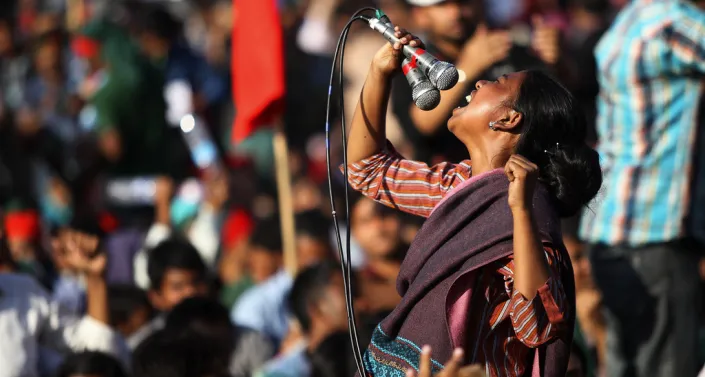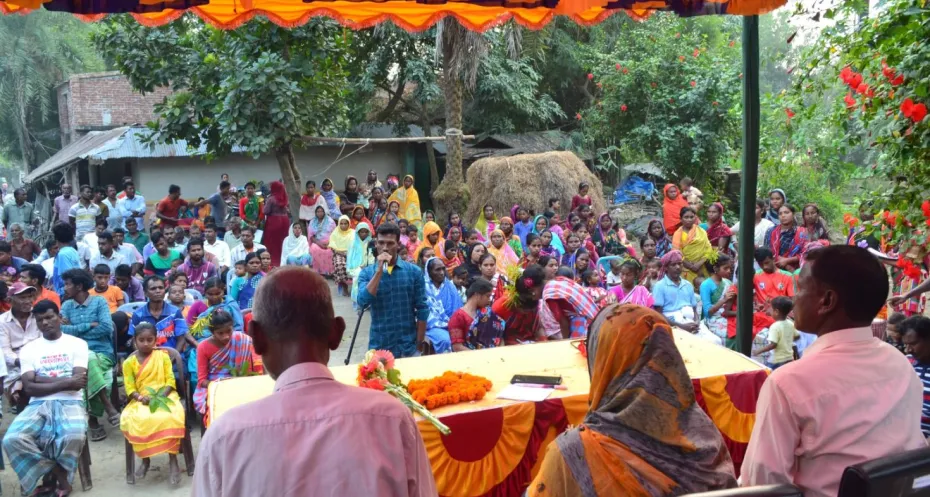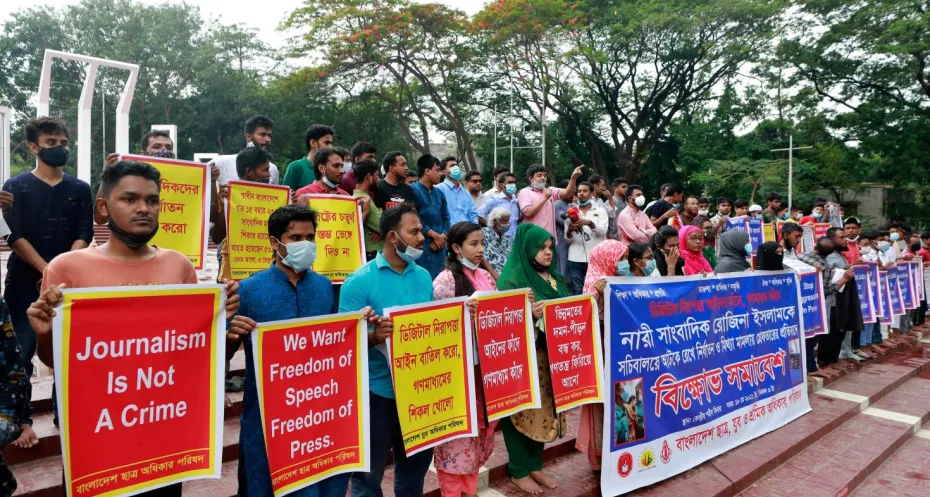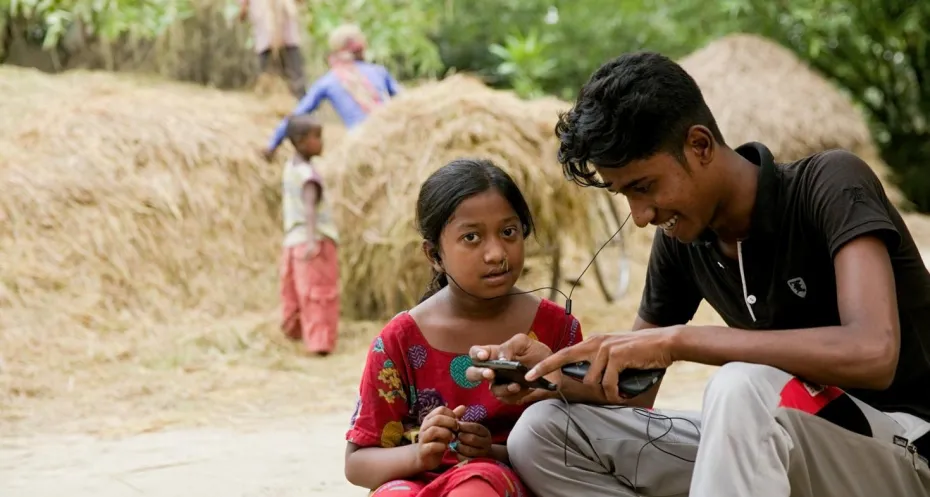
Bangladesh
Bangladesh is one of the most densely populated countries in the world with 163 million inhabitants. The country is seen as an emerging market and has been rated by Freedom House as a "partially free" country. Despite having an established democratic system, the country is known for its high levels of corruption, climate change challenges and the Rohingya refugee crisis. The country is ranked 163rd on the RSF World Press Freedom Index.
During the 2018 elections, disturbing human rights violations were reported, including violence by political activists against reporters, the blocking of news websites and arbitrary arrests of journalists. Since then, the authorities have sought to control independent media and human rights defenders by dealing with any public dissent or criticism of the government under the Digital Security Act. Violence, extrajudicial killings and kidnappings are commonplace. Bangladesh is heavily influenced by patriarchal social, cultural and religious norms. While violence against women and child marriage are prohibited by law, both issues remain a huge problem.
Media landscape
In Bangladesh, freedom of speech and freedom of the press deteriorated significantly from 2017 onwards. Laws such as the Digital Security Act create a hostile environment that does not benefit press freedom. Journalists are often harassed, attacked, detained and sometimes even murdered. As a result, there is a high degree of self-censorship among journalists. Media channel licenses are generally only granted to parties whose political views match those of the government. Budgets are often minimal and revenue models depend on advertising.
Women in journalism
Only 10% of journalists working in Bangladesh are women, and they still face many obstacles. Women are confronted with (sexual) harassment both in and out of the newsroom. They are not given the same opportunities as their male colleagues and there is a lack of training opportunities. When women are in the news, they are often depicted in stereotypical ways; the focus is on their beauty and sexuality or they are portrayed as weak, passive and subservient.
Our work in Bangladesh
In Bangladesh, Free Press Unlimited is part of the PRIMED consortium, where we have worked together with ARTICLE19 South Asia, BBC Media Action Bangladesh and Media Development Investment Fund South Asia. These parties all work together to make the media more resilient to political and economic pressures that undermine media freedom in Bangladesh, Ethiopia and Sierra Leone.
In Bangladesh, the PRIMED consortium works to improve ethical standards and support local coalitions that advocate for media freedom. It supports media partners in their professional development and the creation of relevant news across multiple revenue-generating platforms. Within this project, Free Press Unlimited focuses specifically on the inclusion of women in the media sector and gender-sensitive media content with South Asia Center for Media in Development (SACMID).
Free Press Unlimited is also working with ARTICLE19 in Bangladesh on two different projects. The first project is called JESS and focuses on safety for journalists. Within the project, Free Press Unlimited is creating online courses in Bangla on digital safety, and organising psychosocial support for women journalists. The second project is called Joining Forces and focuses on cooperation between Civil Society Organisations and the media. Twenty partnerships between these two types of organisations will be set up within this project. These partnerships will be selected and supervised by Free Press Unlimited and ARTICLE19 and will cooperate on knowledge sharing and mutual capacity building.



